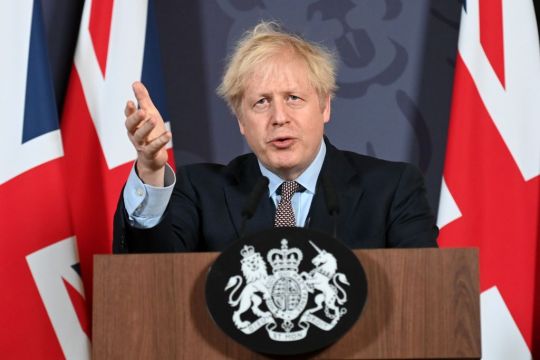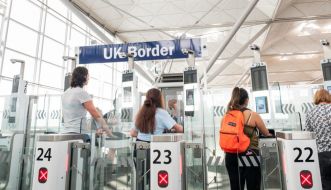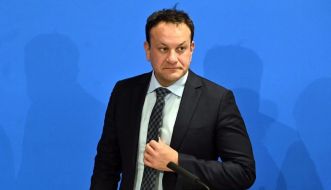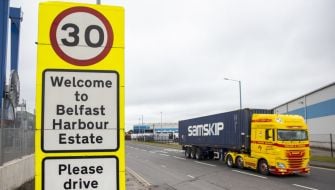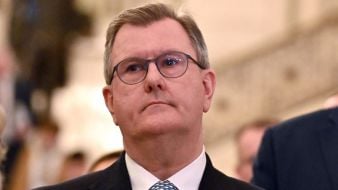Britain has clinched a Brexit trade deal with the European Union, just seven days before it exits one of the world's biggest trading blocs in its most significant global shift since the loss of empire.
The deal, agreed more than four years after Britain voted narrowly to leave the bloc, means it has averted a chaotic finale to the tortuous divorce.
It will preserve Britain's zero-tariff and zero-quota access to the bloc's single market of 450 million consumers, but will not prevent economic pain and disruption for the United Kingdom or for EU member states.
Many aspects of Britain's future relationship with the EU remain to be hammered out, possibly over years.
“It was a long and winding road,” European Commission President Ursula von der Leyen told reporters. “But we have got a good deal to show for it. It is fair, it is a balanced deal, and it is the right and responsible thing to do for both sides.”
British prime minister Boris Johnson hailed striking what he called “the biggest trade deal yet” with the EU, saying Britain had taken back control of its laws, borders, and fishing waters.
“So I'm very pleased to tell you this afternoon that we have completed the biggest trade deal yet, worth £660 billion a year, a comprehensive Canada-style free trade deal between the UK and the EU,” he told a news conference.
Mr Johnson had earlier tweeted a photo of him holding his arms aloft in victory with the words: “The deal is done”.
The deal is done. pic.twitter.com/zzhvxOSeWz
— Boris Johnson (@BorisJohnson) December 24, 2020
Advertisement
Taoiseach Micheál Martin said the deal represented “a good compromise and a balanced outcome” but warned there was “no such thing as a ‘good Brexit’ for Ireland”.
Mr Martin said fishing communities in Ireland may be disappointed with the agreement but that negotiators had worked hard to minimise damage and avoid a no-deal scenario.
Deal Done! 4yrs work to protect #Ireland & #EU through #Brexit. Certainty at last:
☑️ No return to hard border
☑️ The GFA & Peace Process is protected
☑️ The single market is safe & #Irelands place in it
☑️ No tariffs or quotas on trade
☑️ A fresh start for U.K. relations
🇮🇪🇪🇺🇬🇧Advertisement— Simon Coveney (@simoncoveney) December 24, 2020
Minister for Foreign Affairs Simon Coveney warmly welcomed the deal as “protecting” Ireland and the EU through Brexit.
Mr Coveney said a hard border had been prevented and the Northern Ireland peace process protected.
He also welcomed trade arrangements, and added it was a “fresh start” for UK relations.
Northern Ireland’s leaders welcomed the deal, with First Minister Arlene Foster saying the Stormont Executive had been united in supporting the need for a trade deal.
“This is the start of a new era in the relationship between the UK and the EU and in Northern Ireland we will want to maximise the opportunities the new arrangements provide for our local economy,” she said.
Deputy First Minister Michelle O’Neill said the Executive as a whole will examine the detail of the deal.
While the last-minute deal prevents the most acrimonious ending to the saga on January 1st, the United Kingdom is set for a much more distant relationship with its biggest trade partner than almost anyone expected at the time of the 2016 referendum.
A deal had seemed imminent for almost a day, until haggling over just how much fish EU boats should be able to catch in British waters delayed the announcement of one of the most important trade deals in recent European history.
Changes on the way
The UK formally left the EU on January 31st but has since been in a transition period under which rules on trade, travel and business remained unchanged until the end of this year.
If the sides have struck a zero-tariff and zero-quota deal, it will help to smooth trade in goods that makes up half their €750 billion in annual commerce.
It will also support the peace in the North – a priority for US president-elect Joe Biden, who had warned Johnson that he must uphold the 1998 Good Friday peace agreement.
Even with an accord, some disruption is certain from January 1st when Britain ends its often fraught 48-year relationship with a Franco-German-led project that sought to bind the ruined nations of post-second World War Europe together into a global power.
After months of talks that were at times undermined by both Covid-19 and rhetoric from London and Paris, leaders across the EU's 27 member states have cast an agreement as a way to avoid the nightmare of a “no-deal” exit.
But Europe's second-largest economy will still be quitting both the EU's single market of 450 million consumers, which late British prime minister Margaret Thatcher helped to create, and its customs union.
